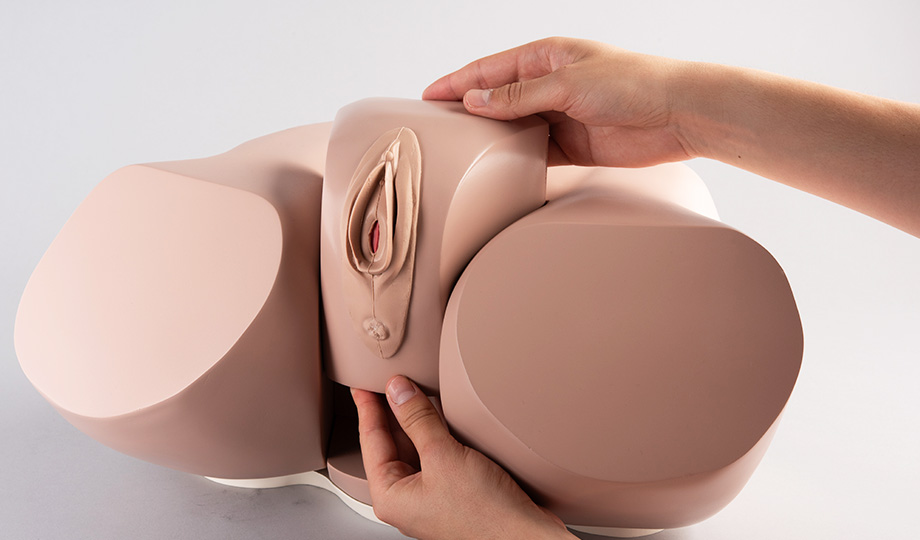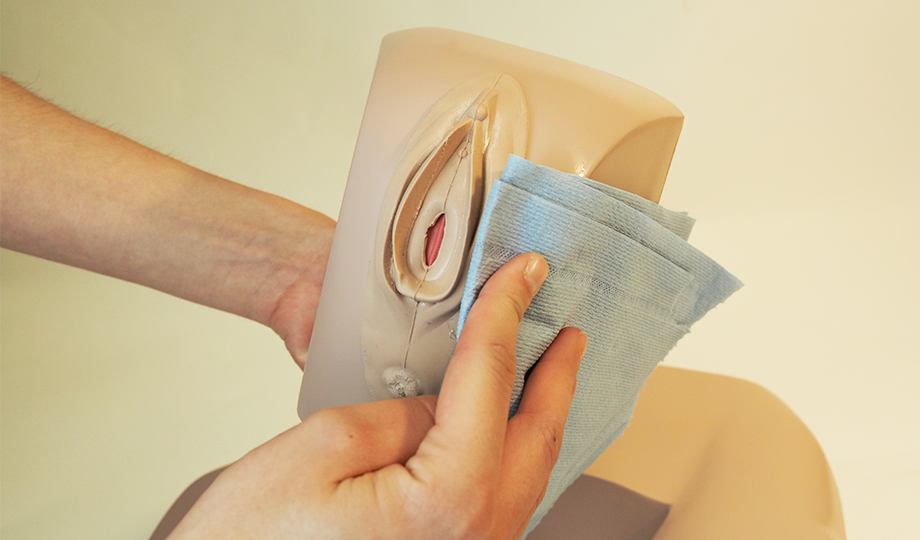Responsive life-like training model for hands-on practice
Pelvic floor problems like incontinence, prolapse, trouble going to the toilet and pain during sex are all too common, and often the best line of treatment is physio.
The only way for physiotherapists to learn how to examine pelvic floor muscles is by practising on each other, which is far from ideal.
New clinical training device, SimLevator™, transforms that. It mimics pelvic floor muscle movements, so students can practice checking patients’ muscle strength and function without risking discomfort or harm.
Developed by Brunel University London product design engineering graduate, Maia Heath, SimLevator™ is the first anatomically accurate, ‘feels real’ pelvic floor simulator.
“There is a woeful lack of attention and resources dedicated solely to women's health,” said Maia, 21, from Hong Kong. “Female anatomy must not be taboo, and the slow process towards de-stigmatisation begins with education and assurance through high-quality clinical care.”
Inspiration came from leading international pelvic health physiotherapy specialists, Brunel's Lucia Berry and Paula Igualada-Martinez, alongside a year’s work placement at Guy's & St Thomas', where Maia worked in the Simulation and Interactive Learning Centre.

“The project was incredibly challenging one,” said Maia because it combines simulating visual and haptic accuracy with the moving parts. "I explored many tech options, from VR to smart materials. The best way to recreate muscle movement was a physical device, ensuring it was anatomically accurate and felt real."
SimLevator™ saw several different prototypes to reach its final design. Maia used CAD (computer-aided design) for the anatomy and optimised the 3D printed moulds. The circuitry was another test - marrying the practical challenges of motor torque and mechanical function with coding the software.
Its body piece houses replaceable battery packs, motors and a microcontroller. Interchangeable silicone inserts that look and feel real simulate different anatomies, conditions, skin tones and injuries. Muscle tone is also controllable, to help students practice and build confidence for working with patients.
A Design for Health project in collaboration with Brunel’s College of Health, Medicine and Life Sciences, SimLevator™ won Brunel Design School’s Made in Brunel 2024 award for ‘Best Medical Project’.
Maia’s next step is to run a pilot feasibility study with a wider pool of physiotherapists- to gather real training data to publish and apply for grants.
